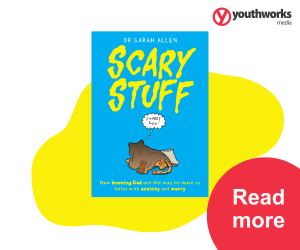
How to protect your kids from cyberbullying
The digital world can be a dangerous place, so how can you keep your children safe?
Cyberbullying is one of the many dark sides of the digital era. Sadly, the bullies of the past haven’t gone away despite extensive anti-bullying education in schools. And with mobile devices so prevalent, bullying has taken on a new and alarming form.
Cyberbullying can look like normal bullying, simply taking place via texts or messages. However, it also has other forms. The capacity of mobile phones and social media means that unkind or compromising images can be easily shared, accounts can be hacked and people can be impersonated in order to force others to reveal personal information.
With cyberbullying affecting around one third of kids, and up to 80% having knowledge of cyberbullying taking place in their school, how can you protect your kids from cyberbullying[RB1] ? And how can you make sure your kids don’t engage in cyberbullying?
Learn the laws
Each state has different laws about cyberbullying, but they all have certain laws which prevent and criminalise different online acts of aggression. In NSW, breaking these laws can lead to jail terms for those over 18, and juvenile detention, fines or community service for those under 18.
Make yourself aware of the laws that operate in your state, and teach your kids these laws too. This will help them to be aware of when something is going on that shouldn’t be. It should also act as a strong deterrent to them getting involved in cyberbullying.
Keep technology public
Kids and teenagers can be quite secretive about their use of technology. In order to give yourself the best chance of knowing about cyberbullying and if it’s taking place, have rules about technology that limit your kids’ ability to hide their online activity. Regularly check their phones, keep computers in public areas and set child locks on app stores if you don’t want your kids on certain social media networks.
Talk to your kids about their lives
If your kids seem distracted, sad or defensive, sit them down and ask them why. By asking the right questions, you may be able to find out about cyberbullying before it gets too serious. Make sure your kids know that you always have time to talk to them if they have a problem. It may be helpful if you share some of your own school day experiences with your kids, so they know you will be able to empathise with their problems.
Record and report
If you become aware of cyberbullying, record it immediately. Take a screenshot, copy out the text or save the images to your phone. Then report it straight away. You can report cyberbullying to the school, which is often a good first step that allows for parents and teachers to address the issue as well as deliver appropriate punishment. However if you feel the cyberbullying is particularly serious, you may wish to contact the police. If you, choose to go down this route, a phone call to the school to let them know what you are doing is also wise.
Let the site know
Most cyberbullying takes place over a social media site, and you can let the site know what has happened. This is particularly important if there are unkind images or text visible to the public and causing distress to your child. Do a Google search for “[Name of social network] bullying” (or check out the links below) to find out what options you have. Social media sites have a responsibility to deal with illegal content so you should get a response fairly quickly.
Arm yourself with resources
Have a look through the sites below and bookmark the ones you find most useful. Share them with other parents and your kids. Although the internet can be a sad and scary place, it’s also full of plenty of useful information!
- What is Cyberbullying and How to Stop It: useful information about cyberbullying, how to stop it and interesting statistics.
- Lawstuff: explanations of the legalities of cyberbullying in NSW.
- Facebook’s Bullying Prevention Hub: Visit this page if bullying has taken place on Facebook, or if you wish to learn more about how to protect your kids on Facebook.
- Snapchat Safety Tips: safety information and where to report harassment on Snapchat
- Reporting harassment or bullying on Instagram: What to do if inappropriate or unkind pictures are posted on Instagram
For more articles from Growing Faith, subscribe to our monthly e-newsletter.
To hear about the latest books and resources from Youthworks Media, subscribe here.







